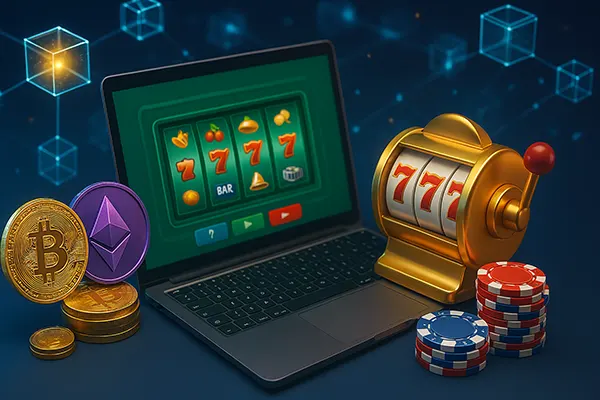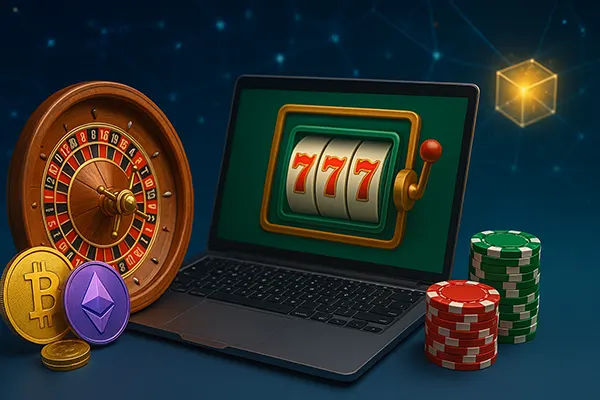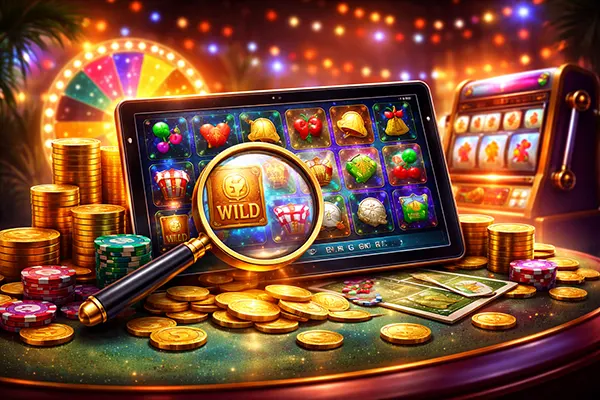
Cryptocurrencies and Gambling: How Web3 Is Transforming Online Casinos
In recent years, the fusion of cryptocurrencies and gambling has become more than a passing trend – it’s reshaping the very infrastructure of online casinos. With the advent of Web3 technologies, players are experiencing a shift in transparency, ownership, and trust. This article explores how decentralisation and blockchain innovations are redefining how we engage with online gaming platforms in 2025.
The Rise of Web3 in the Gambling Sector
Web3 represents the next evolution of the internet – one where decentralisation, peer-to-peer interaction, and user control take centre stage. For online casinos, this means moving away from centralised models to systems that offer more autonomy to players. Web3 platforms utilise blockchain-based smart contracts to automate game logic and payouts, reducing the need for intermediaries.
One of the core benefits is transparency. Every transaction made on a blockchain network is publicly verifiable, ensuring that games are provably fair and tamper-proof. Players no longer have to rely solely on casino operators for outcome trust. This level of openness builds long-term credibility and player confidence.
Major blockchain platforms like Ethereum, Polygon, and Solana are being adopted by gambling projects to power their ecosystems. The use of decentralised applications (dApps) is enabling faster innovation, lower operational costs, and increased accessibility for users worldwide.
Popular Use Cases in 2025
In 2025, leading Web3 casinos are offering full crypto-based experiences – from wallet-based logins to tokenised betting systems. Platforms such as BC.Game, Rollbit, and Stake have seen a surge in popularity due to their integration of multiple cryptocurrencies and on-chain operations. Players can bet with assets like BTC, ETH, and stablecoins while maintaining ownership of their funds at all times.
Gamification elements like NFT-based rewards, governance tokens, and player-owned game items are being widely used to enhance engagement. For instance, certain platforms allow users to vote on new game releases or changes to house edge policies using governance tokens, giving players a direct stake in the platform’s future.
In addition to decentralised slot and table games, sportsbooks are also entering the Web3 space. Projects such as BetDex and Aver are pioneering decentralised sports betting using peer-to-peer pools with oracle-based data feeds, eliminating traditional bookmakers altogether.
Security and Player Protection with Blockchain
Security has always been a top concern for online gamblers, and blockchain offers several innovations that improve player safety. Wallet-based authentication reduces the risk of data leaks and account takeovers, as players do not need to provide sensitive personal information to register or deposit.
Additionally, decentralised identity (DID) systems are emerging as a tool for optional KYC processes. Instead of uploading identity documents, players can prove eligibility via zero-knowledge proofs, maintaining privacy while satisfying regulatory requirements.
Smart contracts also ensure that payouts happen automatically and as programmed, without delays or manual approval from casino operators. This removes human error and potential corruption from the equation, allowing for a more secure gaming environment.
How Regulation Is Adapting
As Web3 casinos grow, regulators are starting to pay attention. Some jurisdictions, like Malta and Curacao, are introducing frameworks for licensing decentralised gambling platforms. These include requirements for transparency in smart contract code and audited random number generators (RNGs).
At the same time, fully decentralised casinos may operate without a central legal entity, raising questions about enforcement. In such cases, responsibility shifts to developers and DAOs (decentralised autonomous organisations) managing the platforms.
To meet both innovation and compliance, hybrid models are emerging. They combine decentralised infrastructure with front-end entities that hold licences and conduct voluntary audits, ensuring legal clarity while retaining the benefits of Web3 technologies.

Economic Impact and Token-Based Ecosystems
The integration of Web3 into online gambling is also transforming platform economics. Many crypto casinos have launched their own native tokens, which serve multiple purposes: staking, rewards, governance, and payment. These token economies create a financial loop that keeps users engaged and invested in the platform’s success.
For example, Rollbit’s RLB token provides holders with passive income through staking pools funded by platform revenue. Stake’s VIP program uses its proprietary token to offer cashback, bonuses, and access to exclusive games, incentivising high rollers and loyal users.
Furthermore, Web3 opens doors to community-driven development. Players can crowdfund new game ideas, earn revenue shares from decentralised apps, or become liquidity providers for betting pools. This active participation turns gamblers into stakeholders and contributors.
Challenges and Future Prospects
Despite the advancements, challenges remain. Network congestion and high gas fees, especially on Ethereum, can impact user experience. Some solutions are moving to layer-2 networks like Arbitrum and Optimism to reduce costs and increase transaction speed.
Additionally, user education is critical. Many players are still unfamiliar with managing crypto wallets, private keys, or interacting with smart contracts. To bridge this gap, platforms are investing in simplified onboarding processes and user support tools.
Looking ahead, the convergence of AI, VR, and Web3 could lead to fully immersive, decentralised gambling worlds. With continued innovation and responsible development, the next generation of online casinos may look vastly different – and more player-centric – than ever before.
Similar articles
-
 Cascading Wins: Why Winning Stre...
Cascading Wins: Why Winning Stre...Anyone who has spent time in a casino, whether online or land-based, has …
-
 Should you play a slot demo to t...
Should you play a slot demo to t...Demo mode is a useful way to understand how a slot works without …
-
 Optimal Bet Size for a Long Sess...
Optimal Bet Size for a Long Sess...Long casino sessions are rarely lost because of one “bad beat”. More often, …
-
 Why Card Counting Appears More E...
Why Card Counting Appears More E...Card counting has long been associated with an image of control, logic, and …
